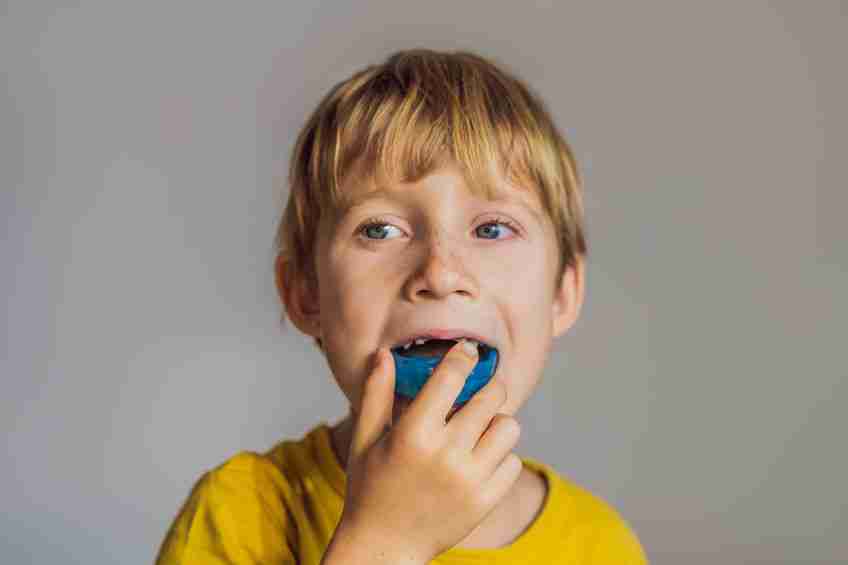Bruxism is a repetitive jaw muscle activity characterized by the clenching or grinding of teeth. It is observed in up to 40% of the pediatric population. Causes of bruxism are still widely speculated amongst guardians and parents, but some studies have shown that it is linked to possible emotional stress. Bruxism doesn’t affect the type of sleep or sleep duration, but there are still negative consequences to untreated bruxism.
The most common consequence of untreated bruxism is tooth attrition, or the wearing down of the tooth over time. However, sleep bruxism is much more likely to induce orofacial pain, headaches, and other more severe sleep disorders, such as obstructive sleep apnea. The most common treatment for sleep bruxism is a small oral appliance, similar to a mouth guard that is worn at night. These appliances can sometimes even fix bruxism associated headaches. Molded to a child’s teeth, the night guard is similar to the protective mouthpieces worn by athletes. Though a mouthpiece can take some getting used to, positive results happen quickly.
The dentist and the pediatrician are responsible for early detection, diagnosis, management, and prevention of sleep bruxism and other sleep disorders in children. Medplex has treatment options available for those experiencing sleep bruxism.
Adapted from: https://tinyurl.com/yxeutc4n
Medplex Pediatric Dentistry serves as a top-rated pediatric dentist for Alabaster, Bessemer, Birmingham, Hoover, Helena, and Pelham, AL.

